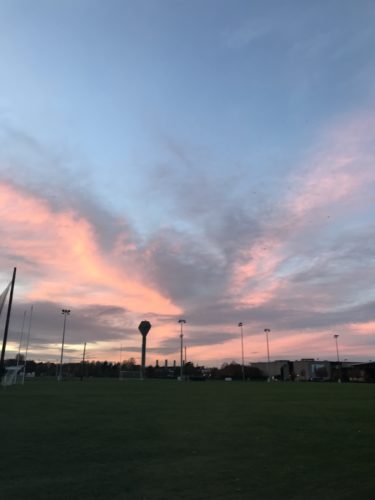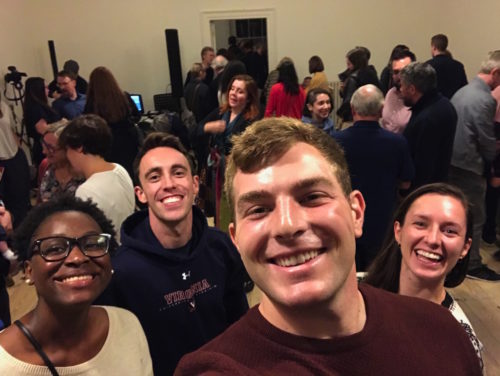Last Monday night, I was sprinting to the James Joyce library at University College Dublin at 10:45 p.m. When I arrived at the front desk, the librarian gave me a startled look, surprised to find someone gasping for air and seeking entrance to the library just before closing at 11:00 p.m. I hastily explained that I was just passing through to check out a book. With an amused glance at my disheveled appearance, he kindly ushered me through the entrance. Once I was through, I began frantically searching for a book I needed in order to finish an assignment due the next day. I emerged 10 minutes later, book in hand, and profusely thanked the librarian on duty. He waved me aside, told me I was “very welcome,” and chuckled once more at my frenetic pace.
While I was an an undergraduate at Duke University, my friends would often joke with me about my penchant for running from activity to activity and bus to bus, but I was in no way an outlier. My sprints may have been a bit more ostentatious than others, but this modus operandi of perpetual motion had been normalized. It was a way of life at Duke, at the high school I attended, and in the neighborhoods in which I grew up just outside of Washington, D.C. Americans love darting from assignment to assignment. We love our (ostensible) productivity, our ability to accomplish tasks faster than anyone else. We love fast casual food and Amazon’s two day shipping.
In Ireland, I’m beginning to understand the benefits of a different approach to life. One that is slower, more measured. One that does not locate meaning in the sheer number of boxes one can check off in a day, or in the response time to an email. One that is instead expressly human-centric. It’s the palpable warmth shared between friends at a pub or in the chatter before class starts. It extends beyond the notion of “friend”: even as an acquaintance, I have been afforded that same geniality.
As soon as we began competing together, the other members of my soccer team quickly befriended me. Perhaps ironically, given UCD’s strong international focus, soccer has granted me my first real opportunity to make Irish friends. It has also taught me to slow down. At the first game, I was itching for the kickoff, irked by the delayed start. Now, I just have to laugh as my friends show up to the game 20 minutes late (right on time according to the referee), complaining of a headache from their previous late night out at the pub.

Sunset over the soccer fields at UCD
Off the soccer pitch, I have found a sense of quietude in my cultural excursions. One of my first nights here remains one of my favorites. I joined a small group of scholars to attend a reading of the poet Stephen James Smith’s most recent book, Fear Not. In one of his poems, Smith recited, “We must create to know who we can be.” His words have stayed with me, and I hope they will guide the remainder of my time here: I aim to create new friendships, new memories of our travels, and new wisdom gained from books. Along the way, perhaps I’ll take a step closer toward understanding who I can be.

At Stephen James Smith’s poetry reading
